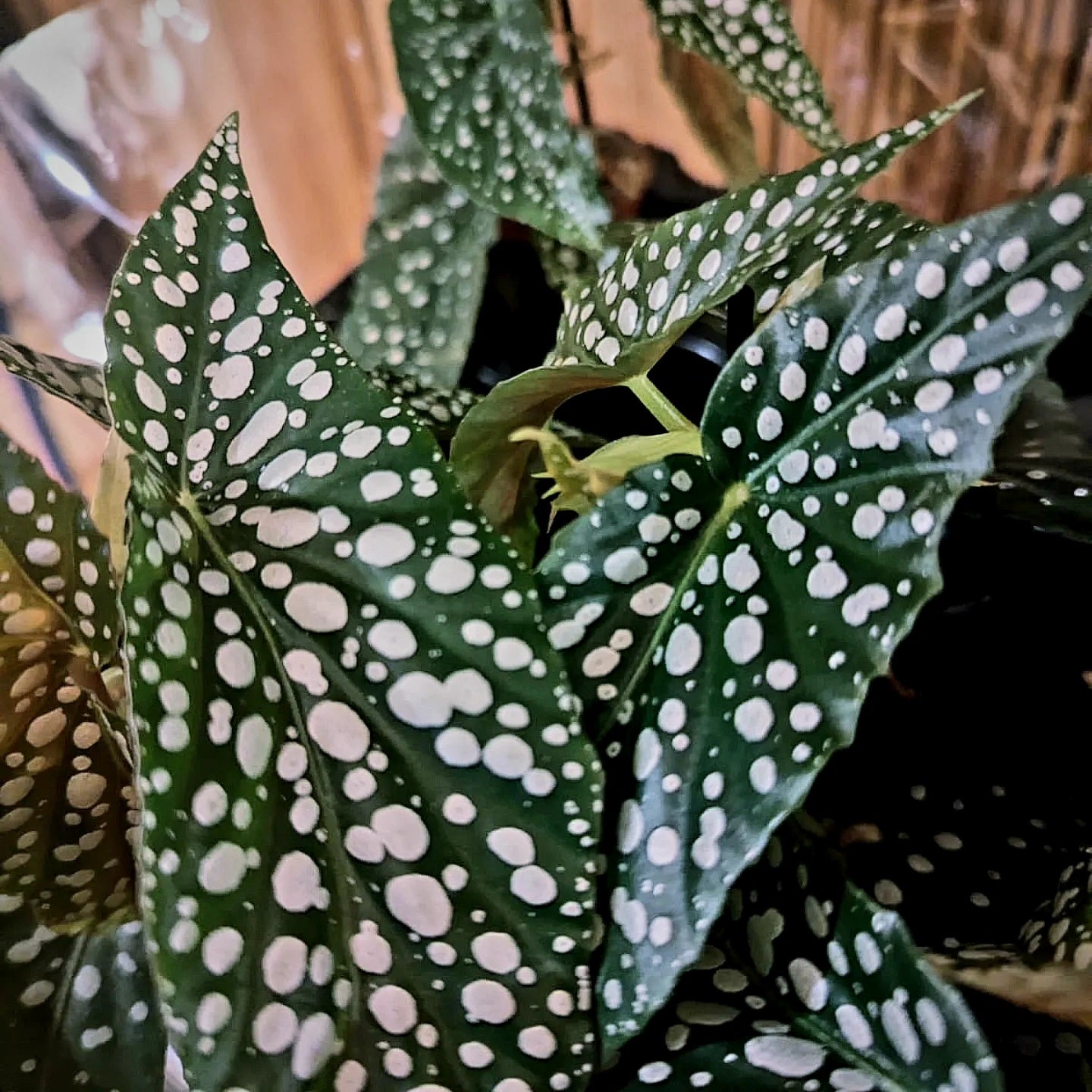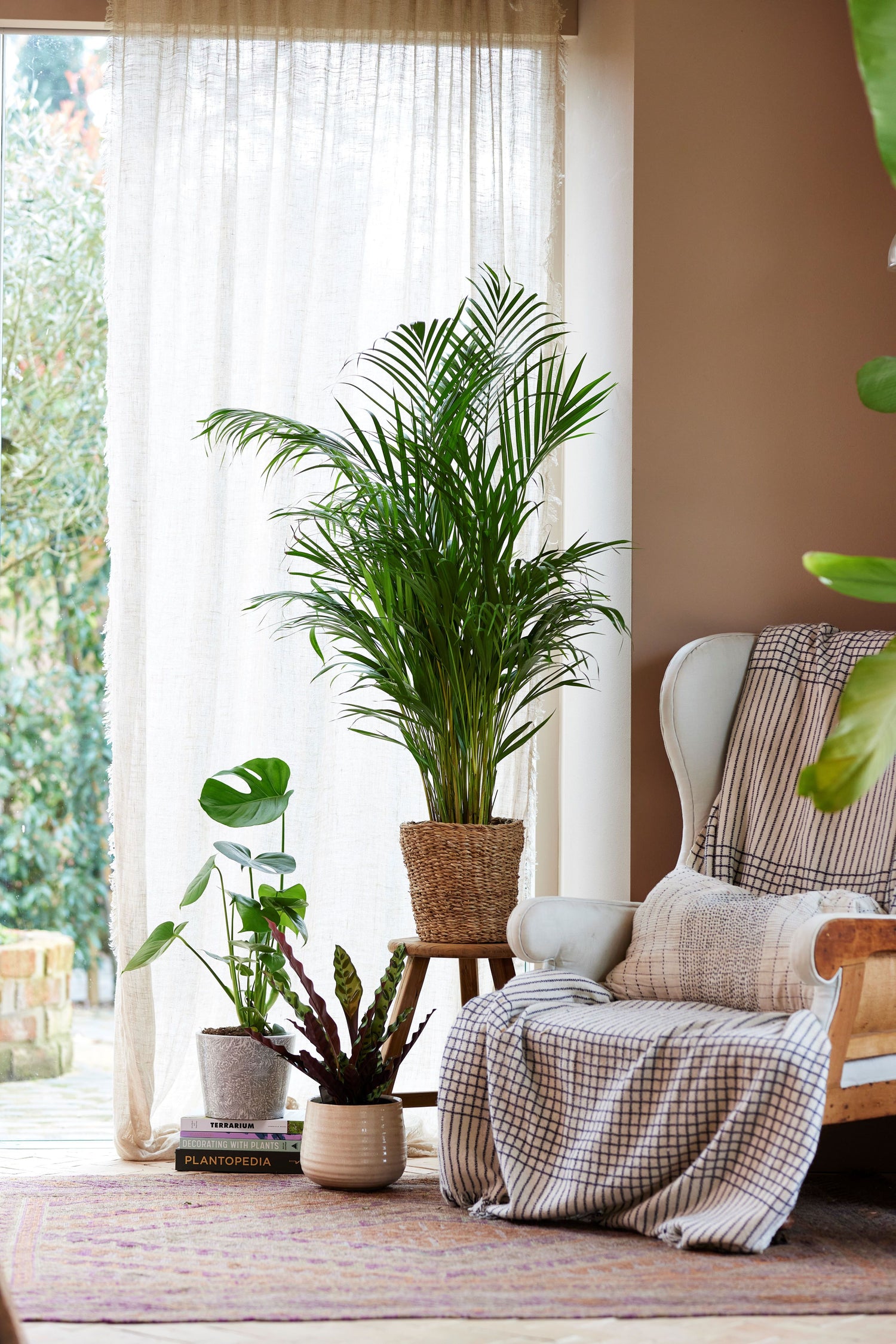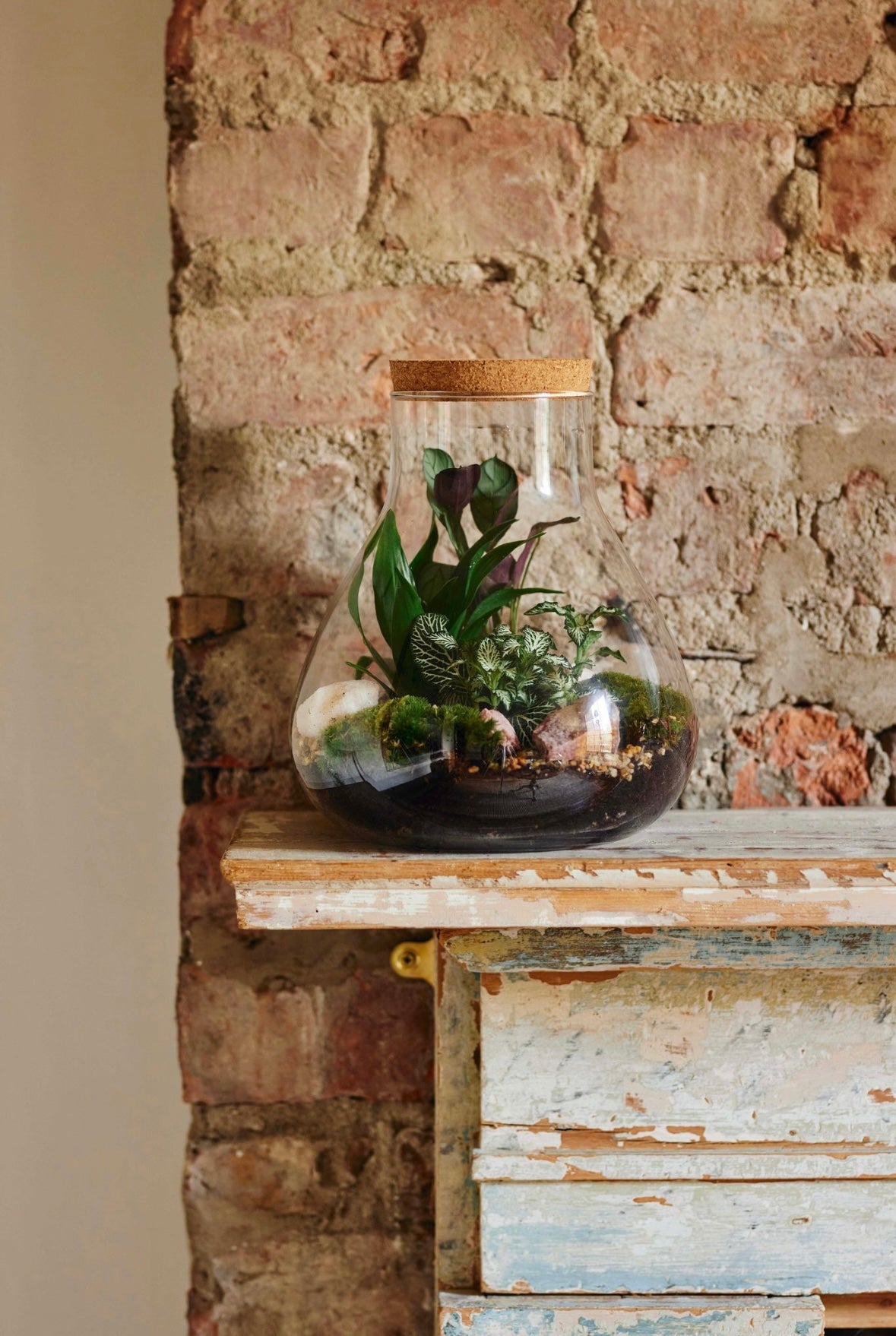Winter is a difficult time of year for our plants. The days grow shorter, making the sunlight and warmth our plants need to thrive scarce, especially in the UK. Growth slows down, and plants may become dormant entirely, conserving their energy to fuel a springtime revival. For non-native plants to thrive in British wintertime, the care we give them must change with the seasons.
It’s important to remember that many of our houseplants are native to tropical regions and often don’t experience anything like our winter in their natural habitat. This is a stressful time for them, and things like repotting only cause further stress. Avoid repotting plants from the end of October up to around March unless it’s an emergency! In the colder months, plants will struggle to produce the roots needed to adapt to a larger pot, and are much more prone to root rot as a result. In addition, resist the urge to feed your plants too much. Plant food is best saved for the active growing period in spring and summer, so allow your plants a little break for the winter.
Tropical plants can be very sensitive to temperature changes, and it is important to avoid letting delicate species such as Alocasia and Ficus get too cold. 18-25℃ is the ideal range, though many plants will tolerate down to 15℃ without too many issues. Take measures to protect your plants from cold draughts, and keep humidity-loving plants away from the dry air around radiators.
Reducing watering is crucial to keeping your plants happy in winter. As mentioned above, most plants will slow down their growth in the colder months, and some may go entirely dormant. Plants will require less water and should be allowed to dry out a little more between waterings. Avoid leaving plants in waterlogged soil at all costs in winter, as root and stem rot can be a serious issue! Keep an eye out for yellowing or falling leaves, as this is often a sign of overwatering.
Plants may need to be moved a little closer to your brightest windows, as shorter days will mean even less sunlight for those darker corners! Before we hit the darkest months of December and January, take the time to consider if any of your plants might benefit from a different position. Try and provide as much light as you can for the plants that need it, as the extra sun will help them through to spring.
Winter may seem daunting, but by paying attention to your plant’s requirements and the changing conditions in your home, you should be able to safely provide everything a plant needs to thrive all year round!





